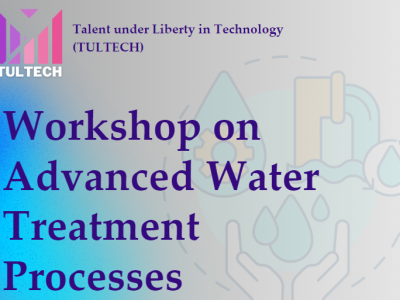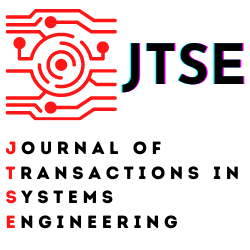Announcements
No announcements yet
New blog posts

Completion of Workshop on Water Recling Simulation and Modelling: Unlocking the Future of Water Management
19 March, 2024 by Charlotte Lee
We are thrilled to announce the successful...

IJITIS Journal Meeting and SWOT Analysis at TULTECH
15 January, 2024 by Charlotte Lee
Greetings, TULTECH community! In our...

A Milestone Meeting for EIL: Shaping the Future of Environmental Industry Letters
15 December, 2023 by Charlotte Lee
Dear TULTECH Community, We are delighted to...
Weather

-7°C
Calendar of Events
Unused Energy, an Easy Fuel for NFTs
Posted on 11 July, 2023 by benyamin chahkandi

Summary: Researchers from Cornell Engineering have discovered that underutilised solar, wind, and hydroelectric electricity in the United States might sustain the exponential rise of transactions involving non-fungible tokens (NFTs).
Fengqi You are the corresponding author of "Climate Concerns and the Future of Non-Fungible Tokens: Leveraging Environmental Benefits of the Ethereum Merge," which appeared in the Proceedings of the National Academy of Sciences on July 10. You are the Roxanne E. and Michael J. Zak Professor in Energy Systems Engineering at Cornell Engineering. Apoorv Lal, a graduate student in chemical and biomolecular engineering and a part of the You Research Group, is You's co-author.
Processing NFT transactions, which has quadrupled over the past five years, used to be quite energy-intensive, but a recent move to a more energy-efficient algorithm has made it more sustainable. However, the researchers predicted that the anticipated surge in yearly NFT activity will more than offset those savings.
Due to a shortage of storage capacity, excess renewable energy pushes grid operators to reduce output. That untapped potential for energy production would be utilised by your suggestion.
You said, "It's the same concept as a car sitting in someone's garage." "They may give it to someone for carsharing if it's not being driven. In our situation, underutilised wind, solar, and hydropower resources could be put to excellent use.
Technology-wise, we show it's absolutely viable because these power sources are already there, he said, "but of course, this would be up to the industry and policymakers."
Their main discovery was that the increased NFT processing activity might be partially supplied by underutilised or unused current power sources. An exponential rise in NFT transactions might be powered by 50 megawatts of untapped hydropower from U.S. dams that are now not being utilised to produce electricity or by 15% of untapped wind and solar energy from sources in Texas.
Although NFT transactions and other blockchain technologies provide a high level of security in a range of applications, the amount of energy needed to complete each transaction is troublesome in a warming planet.
People were initially mainly concerned with how useful these applications were, according to Lal. But while the use of enormous amounts of energy lies at the core of all these applications, they eventually began to understand the effects on energy and the environment.
According to the authors, if no steps are taken to make NFT transaction processing more environmentally friendly, their yearly emissions will amount to 0.37 megatons of carbon dioxide, which is about similar to the CO2 emissions from 1 million one-way flights for a passenger travelling from New York to London.
The Ethereum blockchain responded to the request for more environmentally friendly trade in September 2022 by switching from a computationally-intensive proof of work (PoW) algorithm to a proof of stake (PoS) consensus mechanism. After the changeover, referred to as the Ethereum Merge, energy consumption significantly dropped.
However, an exponential increase in recorded NFT transactions would result in more validators working on the network, according to the authors. An exponential rise in NFT transactions might require as much energy as 100,000 American households by the end of this decade.
Therefore, even if individual NFT transactions use substantially less energy, the cumulative effect of more validators using fossil fuel-dominated grids will increase the associated carbon debt.
You stated that by the end of this decade, the carbon created by NFT transactions might be nearly equal to the carbon produced annually by a 600 megawatt coal-fired power station.
The viability of two hydroelectric energy carriers, green hydrogen and green ammonia (more energy-dense than hydrogen), was assessed by the authors. They noted that these energy carriers' cost savings depend on a variety of variables, including the distances travelled and the proportion of available renewable energy sources that are used.
According to the authors, retrofitting these current power sources could be difficult but would still be beneficial for the environment and energy carriers.
NFT processing consumes a lot of power, therefore this turns out to be an excellent approach to benefit from these restrictions, You said.
You are a co-director of the Cornell University AI for Science Institute and a senior faculty fellow at the Cornell Atkinson Centre for Sustainability.
source: www.sciencedaily.com/releases/2023/07/230710180443.htm
Event Categories
Past Events
Workshop on Artificial Intelligence Applications in Smart Cities
20 August, 2024
Workshop on Advanced Water Treatment Processes
10 July, 2024
Workshop on Water Recycling Simulation and Modelling
15 March, 2024Today In History
Here are some interesting facts ih history happened on 11 February.
- Traditional founding of Japan by Emperor Jimmu Tenno
- King Frederick of Denmark offers island of Hveen to Tycho Brahe
- Rene Descartes - "I think therefore I am" - dies
- Major streets lit by coal gas for 1st time
- Leon Foucault discovers 1st physical proof of earth's rotation - dies
- Vatican City (world's Smallest Country) is made an enclave of Rome
- Pumping begins to build Treasure Island
- 44-day sit-down strike at General Motors in Flint - Mich. ends
- 1st flight with Negro stewardess - RC Taylor - Ithaca NY
- Jack Paar walks off his show
- Madison Square Garden III closes MSG IV opens
- Japan becomes 4th nation to put a satellite (Osumi) in orbit
- 25th hat trick in Islander history - Denis Potvin
- Tenth Space Shuttle Mission - Challenger 4 returns to Earth





